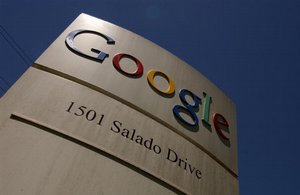CeBIT 2001, which will take place in Hannover from March 22 - 28, documents more than anything else the rapid pace of development in e-commerce.
Published:
22 March 2001 y., Thursday
CeBIT 2001, which will take place in Hannover from March 22 - 28, documents more than anything else the rapid pace of development in e-commerce. This applies both to the electronic processing of business-to-business transactions and to the development of online communications between companies and consumers. As a universally accessible platform the Internet has made it possible for suppliers and purchasers of goods and services to make contact and transact business in "electronic marketplaces." According to analysts at the Gartner Group in London, the market volume of e-commerce in Europe alone is set to grow from 35 billion dollars today to over one trillion dollars by the year 2004.
Many applications for Internet access on the move are now being developed on the basis of WAP technology (wireless application protocol). Thousands of software houses large and small now offer mobile applications for every area of life. Mobile phone users now have access to the same range of services - from banking transactions to hotel bookings - as customers who access the Internet from a PC in their home or office. According to industry observers, one of the biggest growth markets in the future will be games, which mobile phone users will be able to play by accessing the Internet on the move through a new generation of mobile networks, such as GPRS (general packet radio service) and the new UMTS (universal mobile telecommunications system).
For many consumers the Internet is already an important decision-making tool when shopping for new products. The mobile phone has become a mass-market consumer item. By 2005, according to a survey by Ericsson, the number of mobile phone users worldwide will have risen to 1300 million. 1000 million of these will also have access to mobile Internet services. At present the take-up rate for WAP phones, which offer Internet access based on the "wireless application protocol," is relatively slow, but by 2005 WAP phones are likely to be the norm. Compared with PC-based applications, where color and animation are the dominant features of the display, the possibilities for displaying information on small portable devices are still very limited. But as new broad-band infrastructures for mobile communications become available, we will see the development of applications that cater for the habits and expectations of PC users on smaller displays and allow information to be displayed in color. Prototypes of UMTS phones with these functions will be among the innovations to be unveiled at CeBIT 2001.
Šaltinis:
cebitusa.com
Copying, publishing, announcing any information from the News.lt portal without written permission of News.lt editorial office is prohibited.
The most popular articles
Software company announced new structure_ of it_s business.
more »
 Wincor Nixdorf is enhancing its consulting portfolio for the banking business.
more »
Wincor Nixdorf is enhancing its consulting portfolio for the banking business.
more »
 Wincor Nixdorf is set to present its ProClassic Enterprise Cash Management software for effective and rational organization of end-to end cash management processes in banks at the Retail Delivery Show.
more »
Wincor Nixdorf is set to present its ProClassic Enterprise Cash Management software for effective and rational organization of end-to end cash management processes in banks at the Retail Delivery Show.
more »
 Yahoo said Jerry Yang will step down as chief executive as soon as the board finds a replacement.
more »
Yahoo said Jerry Yang will step down as chief executive as soon as the board finds a replacement.
more »
 Wincor Nixdorf AG has turned in the best year in its history.
more »
Wincor Nixdorf AG has turned in the best year in its history.
more »
 Visa Inc. is working with the Los Angeles transit authority to allow train, subway and bus riders to pay fares with Visa’s payWave-enabled contactless cards.
more »
Visa Inc. is working with the Los Angeles transit authority to allow train, subway and bus riders to pay fares with Visa’s payWave-enabled contactless cards.
more »
 Customers line up in New York City to be the first to buy Google's new G1 phone.
more »
Customers line up in New York City to be the first to buy Google's new G1 phone.
more »
 Children and teenagers are keen internet users - 12 to 15-year-olds spend at least three hours a day on screen - but are not always aware of the dangers: not just sites showing child pornography or violence but also the risk of bullying or grooming.
more »
Children and teenagers are keen internet users - 12 to 15-year-olds spend at least three hours a day on screen - but are not always aware of the dangers: not just sites showing child pornography or violence but also the risk of bullying or grooming.
more »
 A European Commission study found that devices left on stand-by throughout the European Union in 2005 consumed the same amount of electrical energy as a country the size of Greece or Portugal in 2008.
more »
A European Commission study found that devices left on stand-by throughout the European Union in 2005 consumed the same amount of electrical energy as a country the size of Greece or Portugal in 2008.
more »
 The European Commission has launched a new web portal called “Study in Europe” to promote the attractiveness of European Higher Education to students from other parts of the world.
more »
The European Commission has launched a new web portal called “Study in Europe” to promote the attractiveness of European Higher Education to students from other parts of the world.
more »
 With the increasing availability of the internet, children are being exposed more and more to illicit images and content.
more »
With the increasing availability of the internet, children are being exposed more and more to illicit images and content.
more »